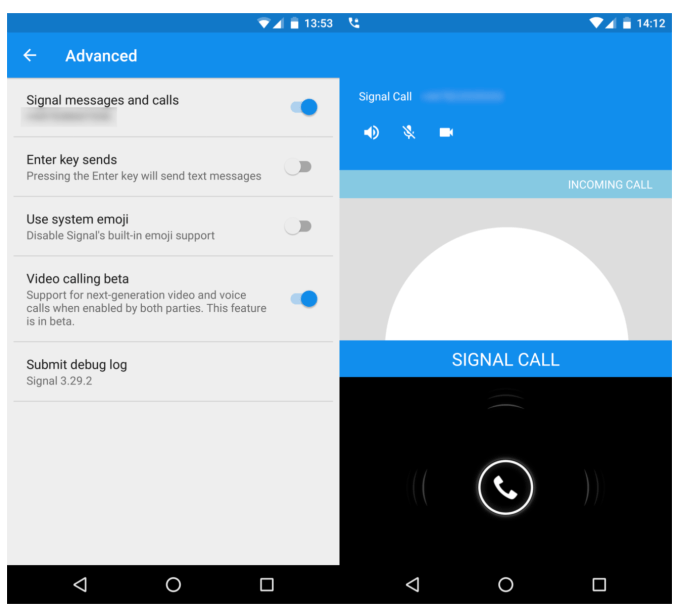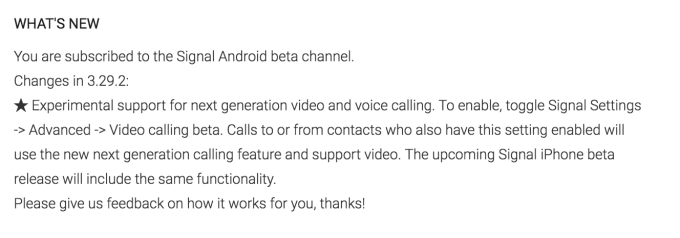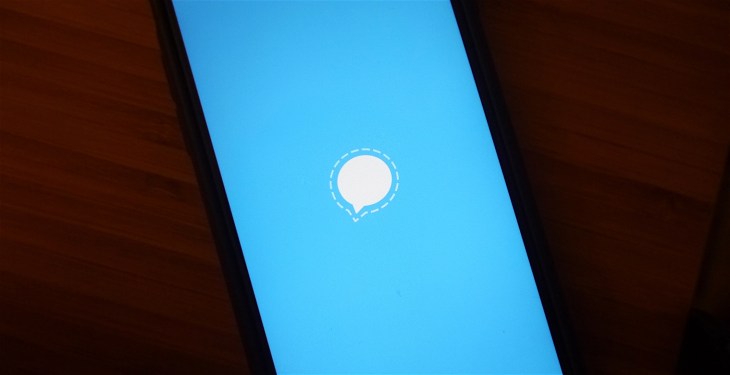Signal, the encrypted chat application praised by Edward Snowden, is looking to move beyond messaging and into video. A new beta version of the app, now in testing, has enabled “next generation voice and video calling” features, according to the app’s changelog. Beta users are able to try the new features with others who also have the setting enabled.
The changes were first spotted by the blog Android Police, which tracks a number of beta applications across the Google Play Store.
However, it appears that Signal’s new voice and video calling test isn’t limited to Android. The app’s release notes also stated that the upcoming Signal iPhone beta release will include the same functionality. (It’s available now, we’re told.)

Signal calls; image credit: Android Police
The feature arrives at a time when Open Whisper System, the not-for-profit software group behind the app and its Signal Protocol cryptography it uses, faced some criticism for spending developer resources working on things like GIF search and stickers, rather than more serious features. That’s a bit unfair, though, because these sort of “fun” features are what draw in mainstream users.
Of course, support for video calling would be considered a major advance for the Signal app, not a fluffy addition.
According to a report from testers, the feature can be enabled in the app’s Settings screen. Here you’ll see a toggle for “Video calling beta.” Users are then able to place encrypted calls to anyone else who adjusted their beta settings in the same way, the changelog on Google Play explains. Though the message also references “next generation” voice calling as well, no further details on that are provided.
During the call, small voice, video and mute icons appear at the top of the screen.

Though aimed at the privacy-minded, Signal competes more broadly with apps like Facebook Messenger, WhatsApp and Google Duo, all of which support video calling. These feature is now considered table stakes for those entering the messaging app space with their own alternative clients.
Signal may be catching up with the rest of the market, in terms of feature set, but the app struggles with adoption because it lacks the network effects of other, more social apps. This, of course, is by design. Because of its security and privacy focus, Signal doesn’t pull in your contacts from other social networks, upload your address book, or offer fun tools like Snapchat’s Snapcodes to make adding new friends easier.
That said, making private video calls possible is something that could attract more users over time, as the feature rolls out more broadly.
Reached for comment, Open Whisper Systems founder Moxie Marlinspike declined to discuss the additions in detail, saying only that they’ll have more to say once the features are publicly available.
(Post updated to clarify how Signal referred to the voice calling changes, with the addition of video.)
